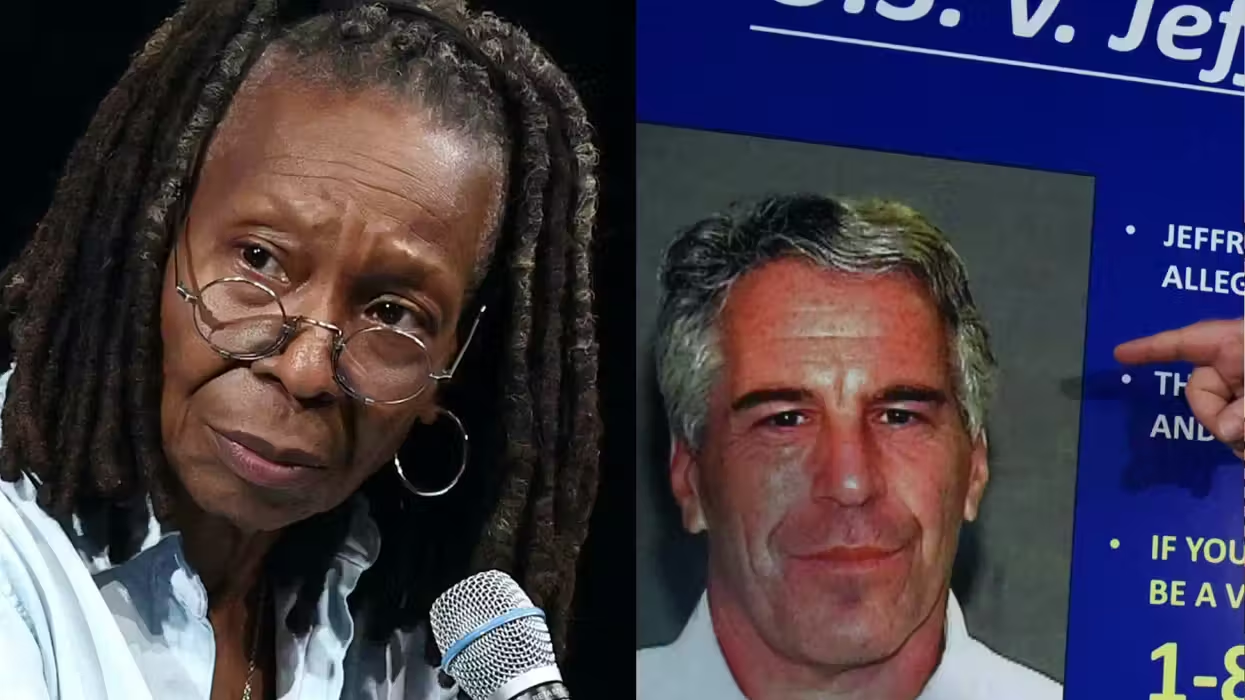
© 2026 Blaze Media LLC. All rights reserved.
Confession: Climate Scientist Says He Was 'Extrapolating Too Far', Outs Others as Alarmists Too
April 23, 2012
“The problem is we don’t know what the climate is doing."

The Gaia hypothesis states essentially that "Earth's physical and biological processes are inextricably bound to form a self-regulating system". The Gaia theory website goes on to say this is "more relevant than ever in light of increasing concerns about global climate change." But today, one of the first people to expound upon this theory, James Lovelock, has admitted to being a "climate alarmist" and is now reversing his stance on the extremes he once thought man-made global climate change would lead us to.
MSNBC reports the 92-year-old scientist has not only said that some of his theories as to the effects of climate change was "extrapolating too far," but he also has named other notable proponents of man-made climate change as alarmists as well. Al Gore is one of them.
This is not to say climate change is not happening, MSNBC reports Lovelock noting. Lovelock is writing a new book in which he will explain how climate change has not affected the environment as he had thought it would and will detail how "humanity can change the way it acts in order to help regulate the Earth’s natural systems," according to MSNBC.
Here's more of what Lovelock told MSNBC in a phone interview:
“The problem is we don’t know what the climate is doing. We thought we knew 20 years ago. That led to some alarmist books – mine included – because it looked clear-cut, but it hasn’t happened,” Lovelock said.“The climate is doing its usual tricks. There’s nothing much really happening yet. We were supposed to be halfway toward a frying world now,” he said.
“The world has not warmed up very much since the millennium. Twelve years is a reasonable time… it (the temperature) has stayed almost constant, whereas it should have been rising -- carbon dioxide is rising, no question about that,” he added.
He pointed to Gore’s “An Inconvenient Truth” and Tim Flannery’s “The Weather Makers” as other examples of “alarmist” forecasts of the future.
MSNBC reports Lovelock, who is noted as "fallen out of the green movement," does not consider himself a denier of man-made climate change. He thinks the climate is still warming but "it's been deferred a bit."
MSNBC points out that Lovelock is a "loner," meaning he is not associated with a university, agency or other research institution. The former NASA employee told MSNBC he believed it is this status that makes it easier for him to say "I made a mistake." If he were associated with any of the previously mentioned sectors, he said that admitting a mistake could be harder to do if it was viewed with the possibility of a loss in funding.
The Guardian reported as early as March 2010 that Lovelock was "warming to the efforts of 'good' climate skeptics." He said at the time:
"What I like about sceptics is that in good science you need critics that make you think: 'Crumbs, have I made a mistake here?' If you don't have that continuously, you really are up the creek. The good sceptics have done a good service, but some of the mad ones I think have not done anyone any favours. You need sceptics, especially when the science gets very big and monolithic."
Here's what MSNBC reports other climate scientists saying of Lovelock's admission:
Peter Stott, head of climate monitoring and attribution at the U.K.’s respected Met Office Hadley Centre, agreed Lovelock had been too alarmist with claims about people having to live in the Arctic by 2100.And he also agreed with Lovelock that the rate of warming in recent years had been less than expected by the climate models.
However, Stott said this was a short-term trend that could be within the natural range of variation and it would need to continue for another 10 years or so before it could be considered evidence that something was missing from climate models.
MSNBC reports Lovelock saying he still holds that the Gaia theory is true but that some of the information he spread in the "Revenge of Gaia," published in 2006, went too far.
Read more of MSNBC's interview with Lovelock and other climate change experts here.
Updated: There were a couple instances where the Blaze wrote "Loveland" instead of "Lovelock". Those have been corrected.
Want to leave a tip?
We answer to you. Help keep our content free of advertisers and big tech censorship by leaving a tip today.
Want to join the conversation?
Already a subscriber?
more stories
Sign up for the Blaze newsletter
By signing up, you agree to our Privacy Policy and Terms of Use, and agree to receive content that may sometimes include advertisements. You may opt out at any time.
Related Content
© 2026 Blaze Media LLC. All rights reserved.
Get the stories that matter most delivered directly to your inbox.
By signing up, you agree to our Privacy Policy and Terms of Use, and agree to receive content that may sometimes include advertisements. You may opt out at any time.






